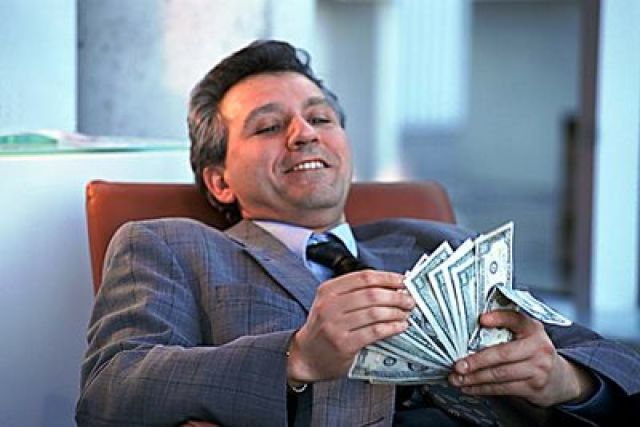
The Australian Financial Review Rich List for 2017 features 60 billionaires — the most ever in its 34-year history. The total wealth of all "rich listers" has reached $233.1 billion, up from $197.3 billion last year.
Highest ranked among the 200 richest people in the country is paper and packaging tycoon Anthony Pratt, with a fortune of $12.6 billion. It looks like all that plastic packaging floating in the world's oceans has reaped at least one plutocrat some positive returns.
Second on the list is property mogul Harry Triguboff with a mere $11.45 billion. Apparently, Australia's stratospheric capital-city housing prices are good news for some, if not those unfortunate aspiring first-home buyers.
Rising mineral export income has boosted WA mining magnate Gina Rinehart's wealth by an estimated $4 billion to $10.41 billion, raising her to third place on the list. Her estranged daughter Bianca is the second wealthiest woman on the list, with $2.74 billion.
The majority of the Rich List are in the property development, mining, retail or telecommunications industries. However, property remains the dominant sector, with 58 of the 200 people on the list making their fortunes in the property area.
Pratt told the Australian Financial Review, upon hearing of his ascent to No 1: "Money is a great scoreboard of success, or one of them."
Money also represents power: as the control by the ruling capitalist class of Australia's federal and state governments is ever more clearly apparent.
But as the wealth continues to pile up for the ruling 1% — or even more notably the 0.1% — inequality is growing in Australia.
A report by the Evatt Foundation last year, revealed: "Australia as a whole has become much wealthier since 1970: the total stock of capital has grown twice as fast as national income during the decades since then.
"But what is more striking is the marked increase in wealth inequality over the same time. We have become collectively richer, but much more unequal.
"A reasonable estimate is that, currently, the poorest 40% of Australian households effectively have no wealth at all. About half of them actually have negative net wealth because of their debts.
"At the opposite pole, the wealthiest 10% have more than half the nation's total household wealth. The top 1% alone have at least 15% of the total wealth.”
The Evatt Foundation report shows that if we exclude durables from the OECD wealth data, Australia's top 10% of households own about the same wealth share as their counterparts in France, Norway and Canada. The only rich countries that are clearly less egalitarian than Australia are Austria, the Netherlands, Germany and the US.
This trend toward greater concentration of wealth at the very top is set to continue. Recent figures from the Bureau of Statistics show that higher commodity prices pushed up company profits almost 40% in the year to March at a time when wages grew only 0.9%.
The national ethos of Australia as a relatively egalitarian country, whatever its limited historical reality, is increasingly becoming a total myth. The inexorable tendency of the late capitalist system, as Karl Marx explained more than 150 years ago and Thomas Piketty confirmed more recently, is toward ever more extreme concentration of wealth and power in the hands of a very few.
Australia is the so-called Lucky Country, which has now set a world record among advanced capitalist countries of 26 continuous years without an official recession. Yet poverty is rising, while the obscene wealth of the tiny minority of plutocrats increases.
The crucial task before the labour movement and the oppressed in this country, and around the world, is to take ownership and control of the key industries and resources out of the clutches of the 1% and place them in public hands under workers' and community control.
Together with a people's government overseeing this radical reconstruction of society, this is the path to a genuine egalitarian and just society. It is called socialism.
Green Left Weekly is committed to this essential project of ending inequality through socialist reconstruction of society. If you want to help us spread the word about this struggle, please make a contribution to our fighting fund 2017.
You can donate online here. Direct deposits can also be made to Green Left, Bendigo Bank, BSB: 633-000 Account number: 160058699. Otherwise, you can send a cheque or money order to PO Box 394, Broadway NSW 2007 or donate on 1800 634 206 (free call from anywhere in Australia).
Like the article? Subscribe to Green Left now! You can also like us on Facebook and follow us on Twitter.